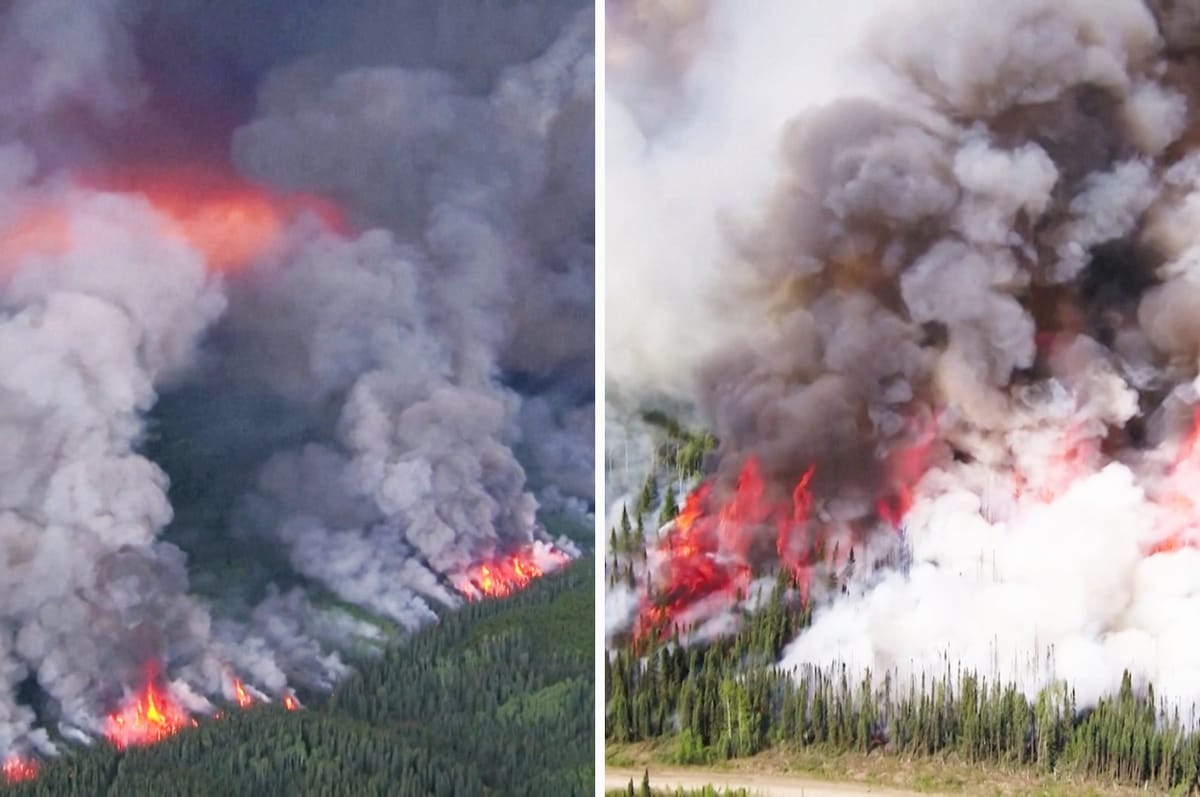This Is The More Than 400 Wildfires In Canada That Are Causing The Haze In New York City
The smoke from Canada’s most severe fire season in history has drifted south to as far as New York.

Canada is facing its most severe fire season in history as more than 413 active wildfires, including 249 deemed out of control, rage across the country.
A string of blazes have rapidly spread to almost all Canadian provinces due to the unusually hot and dry weather, with some of the worst cases caused by lightning.
Around 26,000 residents have fled from their homes in Quebec and the Eastern Canadian province of Nova Scotia.
No injuries have yet been reported.
“When people lose their homes, they don’t just lose a roof and their possessions. They lose a special place where they saw their children grow up, where they built a life for themselves,” Canadian prime minister Justin Trudeau said. “We will be there to ensure that all Canadians are protected right through the summer.”
Canadian Armed Forces Troops, federal aid and hundreds of US firefighters have joined forces to constraint the flames.
The fires have triggered health alerts as the smoke has caused poor air quality throughout Canada and has drifted south to as far as New York in the US.
Videos and photos on social media showed New York City shrouded in an orange haze as people walked around wearing masks.
On the evening of Tuesday June 6, New York recorded the worst air quality and pollution in the world, surpassing cities like Delhi in India, Baghdad in Iraq and Dubai, United Arab Emirates, according to IQAir, a Swiss technology company that monitors air quality.
There have already been 2,214 wildfires and about 3.3 hectares scorched in Canada so far this year, which is about 13 times the average from the past 10 years, according to authorities.
Last Tuesday May 30, Nova Scotia announced a temporary ban on all forest activities in the province, including hiking, camping, fishing, hunting, off-highway vehicle usage and logging, to ensure public safety.
In May, hot and dry weather conditions fueled more than 100 wildfires in the western province of Alberta, forcing tens of thousands of people to evacuate their homes.
Officials said that higher-than-normal fire activity is likely to continue throughout the summer.
Experts say that as the world gets hotter due to climate change, dry and wet seasons will become more intense around the world.
Doctors say that exposure to smoke can “not only cause topical irritation through all of our respiratory linings, but actually cross over into our bloodstream,” according to Reuters.




